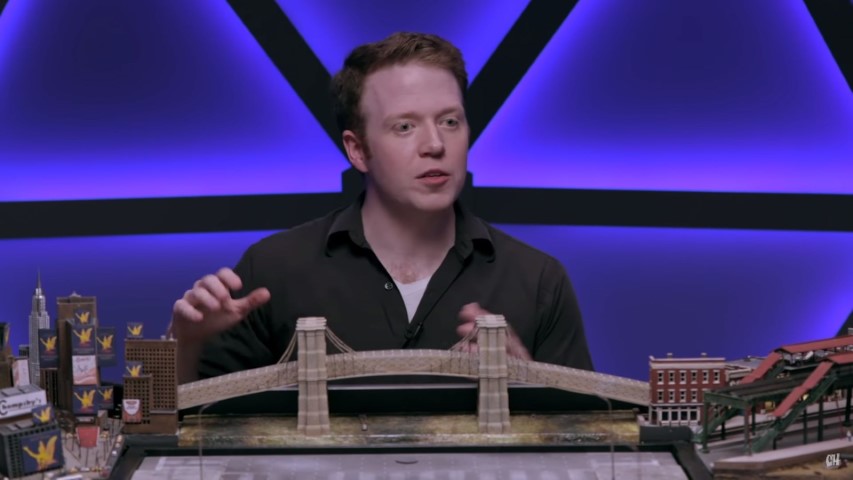
‘Westworld’ review
By Chandler Walter, Assistant Editor
4/5
Westworld is… ambitious, to say the least. The HBO series directed by J.J. Abrams definitely did not hold anything back as far as intricacy is concerned, though how well the 10-episode-long debut season managed to convey those intricacies is left for the viewer to decide.
We will keep spoilers to anything you would learn in the first episode, as we would not want to ruin the gun-toting, whiskey-drinking fun for anyone considering the 10-hour-long story, and who may be reading this review wanting no more than a gentle, guiding hand. Well, I’ve got two, and all 10 fingers to type with, so here we go.
Westworld is an amusement park for rich people. It is inhabited by robotic beings—I refrain from the more definite “robots” for reasons that will become clear if you just watch the damn thing already—that exist solely for the enjoyment of any real humans willing to pay the hefty price. And yes, enjoyment in this case does include (but is not limited to) killing, torturing, berating, humiliating, love-making, shot taking, robot baiting, or just general befriending, depending on the deepest desires of the “guests” of the park. Oh, also, it’s in the wild west. We can’t forget that part.
Westworld—note the italics, we’re talking the show, not the identically named theme park here, folks—takes this somewhat unbelievable premise and delves as deep and as complex as, well, a labyrinth, into the question of what makes a human truly real. Is it free will? A beating heart? Suffering? Love? Memory? All of the above?
This show is ambitious in that it does not hold anything back in the hopes that everyone will like it. It has a LOT of talking, with the majority being some form of explanation. I am more of a show-don’t-tell kind of viewer, but to each their own. It also has a few things here and there that can quite literally throw you for a loop.
The mysteries are hard to realize as actually being mysteries in the first place, until they hit you hard with the twist. By the bitter end the general storyline is tangible, though some may gain from the various YouTube “Ending Explained” videos (guilty).
Looking at a 10-episode series like this one, it is hard not to relate it to another recent watch: The Netflix original, Stranger Things. Though the genres are mostly different, they both operate on a slow reveal to pique the viewer’s interest here and there over the course of the season. While Stranger Things runs a cliffhanger formula that had me up until 6:00 a.m. to finish the series in one go because are-you-kidding-me, Westworld lacked the overhanging questions that needed to be resolved. Sure, things needed explaining, but it was not the driving interest. The premise is enough to encourage an entirely 100 per cent legal stream of at least the second or third episode, and though the characters did not offer too much to root for in the beginning, the show is worth watching just to exist in such an interesting idea.
There is a lot more that could be said about Westworld—from the questions it raises about morality, or identity, or “Who the hell even is the bad guy here?”—but we will leave it at this: Westworld is a great choice if you’re looking for a new show to watch, but only if you are willing to pay attention.
It’s kind of like Lost, actually. The good Lost.
Let’s hope it doesn’t turn into bad Lost.

